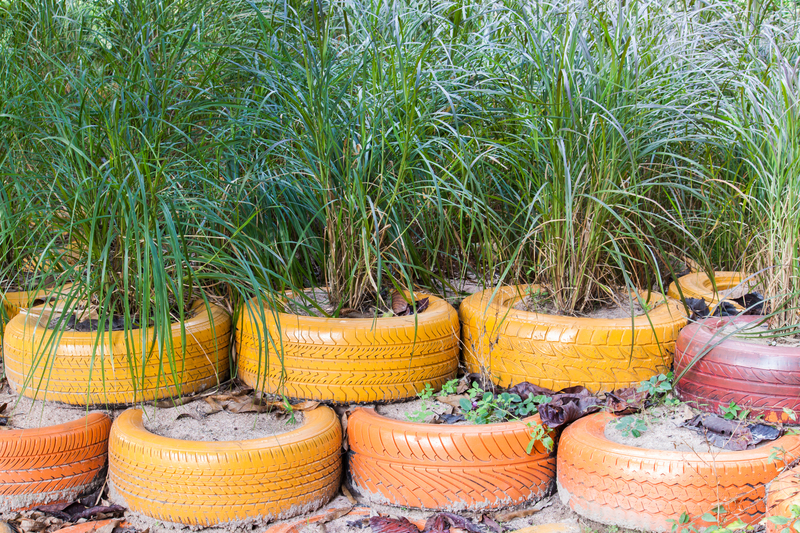Skip Hire Wisdom: Learn the Dos and Don'ts
Looking to clear out rubbish or tackle a renovation project? Hiring a skip is a practical solution for efficient waste disposal. However, successful skip hire isn't just about ordering a bin and tossing your items in. There's an art -- and a science -- to master. In this comprehensive article, you'll gain expert skip hire wisdom by understanding the crucial dos and don'ts of skip hire.
With the right knowledge, you can avoid costly mistakes, adhere to local regulations, and streamline your clean-up. Whether you're a first-time user or a seasoned renovator, our guide ensures you hire a skip like a pro.
What Is Skip Hire and Who Needs It?
Skip hire is a service offered by waste management companies, providing customers with robust waste containers (skips) for temporary use. Once full, the provider collects the skip and disposes of the contents responsibly. Skip bins are invaluable for:
- Home Renovations: Disposing of construction debris and old fixtures.
- Garden Clearances: Removing soil, branches, or landscaping materials.
- Cleanouts: Getting rid of unwanted household goods and clutter.
- Commercial Projects: Managing industrial or site waste efficiently.
While almost anyone can hire a skip, understanding a few essential principles will help you make the most of your skip hire.

Skip Hire Dos: Essential Best Practices
Make your skip hire experience hassle-free by following these fundamental dos.
1. Research Local Regulations
Before booking, investigate local rules on skip placement and waste types. Councils often have strict guidelines regarding where skips can be placed (especially on public roads) and may require permits. Checking these in advance can save you trouble and legal headaches.
2. Choose the Correct Skip Size
Selecting the right skip size is critical. Undershooting will force you to hire multiple skips or overload (which is strictly prohibited), while oversized skips can inflate costs unnecessarily. Skip capacities typically range from mini (2-3 yards) to large (12-16 yards).
- Mini/Midi Skips: Perfect for small cleanouts or garden waste.
- Builders' Skips (6-8 yards): Suits most renovations and minor building work.
- Large Skips: Ideal for major renovations or bulky items.
If in doubt, consult your skip company -- they can recommend the right size based on your project.
3. Plan the Placement Properly
Strategic placement makes loading easy and reduces safety risks. Ideally, position your skip on private property (like a driveway). If you must use public land, apply for a permit first. Ensure there's enough clearance for delivery and pickup, and that it won't obstruct access or emergency routes.
4. Maximize Skip Usage
To make the most out of your skip hire:
- Break down bulky items to optimize space.
- Load flat and heavy materials at the bottom.
- Place lighter debris on top, filling in gaps for greater efficiency.
- Don't overfill -- contents must not exceed the skip's lip to ensure safe transport.
Being methodical saves time and money, and helps prevent potential safety issues.
5. Know What You Can (and Cannot) Dispose Of
Not everything belongs in a skip! Allowed items generally include:
- Household rubbish
- Wood, metal, bricks, and concrete
- Garden waste (soil, branches, grass clippings)
- Furniture
However, most providers restrict the following:
- Hazardous materials (asbestos, chemicals, paints, solvents)
- Electrical appliances and batteries
- Tyres, gas canisters, plasterboard
- Medical waste
Always check with your skip hire company for a complete list of prohibited materials.
6. Arrange Collection in Advance
Coordinate with your skip hire provider to schedule pick-up. Let them know your needs from the outset, so the skip isn't left sitting for longer than required, which can annoy neighbours or invite illegal dumping. Reliable companies offer flexible collection dates for your convenience.
Skip Hire Don'ts: Common Mistakes to Avoid
Many people make avoidable errors that can lead to fines, delays, or safety issues. Here's what NOT to do with your skip hire.
1. Don't Overfill Your Skip
Filling your skip above the rim is unlawful and can create hazardous conditions for transporters. Most companies will not collect overloaded skips. Keep contents level with the skim's edge and never try to "flatten down" the load after filling.
2. Don't Hide Prohibited Items
Attempting to sneak paint, oil, or electricals beneath other waste is a serious offense. Dangerous or non-permitted items could result in extra surcharges, refused collection, or even prosecution. Disclose any questionable materials up front and seek advice on proper disposal.
3. Don't Block Access or Cause Obstructions
Never place your skip in a way that obstructs driveways, walkways, fire lanes, or public thoroughfares. A poorly positioned skip can draw complaints, fines, or removal orders from local authorities.
4. Don't Ignore Permit Requirements
Skipping the legal permission process invites trouble. If you place a skip on a road without a permit, you could face hefty fines or forced removal. Your skip hire company can often arrange the paperwork but always confirm in advance.
5. Don't Burn Waste in the Skip
Burning rubbish inside a skip is illegal and extremely hazardous. Don't light fires to "reduce" your volume -- the provider may impose severe penalties, and you risk harming people, property, and the environment.
6. Don't Allow Others to Dump in Your Skip
It's not uncommon for neighbours to take advantage of your skip. However, you are responsible for its contents. Consider covering the skip overnight to deter fly-tipping or unauthorized use.
Frequently Asked Questions: Navigating Skip Hire with Confidence
How Long Can I Keep a Skip?
Generally, skip hire periods range from a few days to two weeks, depending on your agreement. If you anticipate needing more time, arrange an extension beforehand to avoid extra charges.
How Much Does Skip Hire Cost?
Prices depend on the skip size, your location, rental duration, and type of waste. Mini skips start around ?70, while large skips may exceed ?250. Always obtain an all-inclusive quote to cover delivery, pickup, and disposal.
Do I Need a Permit?
If the skip occupies private land, a permit is typically not required. For placement on a public road, pavement, or verge, local councils mandate a license. Skipping this step can lead to penalties. Many reputable companies handle permit arrangements for a fee.
Can I Move a Skip Once It's Been Placed?
No. Skips are heavy, and moving them without specialist equipment can cause damage or injuries. Always plan the placement beforehand and alert the company if you need to change the position during your rental period.
What Happens to the Waste?
Reputable skip hire businesses sort and recycle much of the waste, minimizing landfill. If sustainability matters to you, seek providers with strong waste recycling policies.
Tips for a Smooth and Responsible Skip Hire Experience
- Book in Advance: During busy periods or for larger skips, schedule your hire early to secure the right size and delivery time.
- Secure Your Waste: Use tarps or boards to discourage unauthorized dumping and prevent light materials from blowing away.
- Group Waste by Type: If possible, keep recyclables or prohibited items separate to facilitate processing or safe disposal.
- Compare Providers: Shop around for price, reputation, and included services. Read reviews and verify environmental credentials.
- Be Present for Delivery: If possible, supervise placement to ensure easy access and prevent property damage.
- Communicate Clearly: Discuss your project scope, waste types, and timelines with the provider for tailored advice.
Why Following Skip Hire Dos and Don'ts Matters
The practice of skip hire goes far beyond convenience -- it's about legality, safety, and environment. By following the outlined dos and don'ts:
- You avoid fines and penalties by staying compliant with local laws and permit requirements.
- You protect your property and the public from injury or damage caused by unsafe skip placement or overfilling.
- You support responsible recycling and waste management practices, reducing landfill impact.
- You save money by choosing the right skip, loading it efficiently, and avoiding unnecessary charges.
- You build respect with neighbours by keeping your project tidy and minimizing disruptions.

Conclusion: Become a Skip Hire Expert
For anyone taking on a big cleanout, renovation or landscaping project, skip hire can streamline your waste removal and minimize hassles. When you approach the process with informed skip hire wisdom -- knowing the dos and don'ts -- you set yourself up for a smooth, cost-effective, and eco-friendly experience.
Before you hire a skip, remember to:
- Plan ahead and choose the right size
- Obtain necessary permits and understand local regulations
- Load safely and legally, following best practices
- Avoid restricted items and don't risk penalties
- Work with a reputable provider for guidance and efficient waste disposal
Armed with these expert tips, you can approach your next project with confidence, efficiency, and peace of mind. Rely on skip hire wisdom -- and transform your clean-up into a stress-free success!
Related Resources
Disclaimer: Regulations and guidelines may vary by location. Always consult your local authority and your chosen skip hire provider for precise advice.